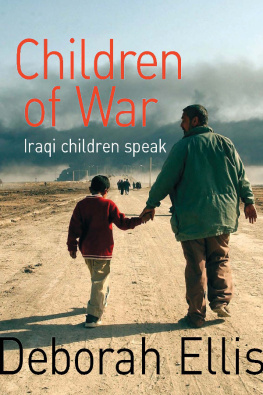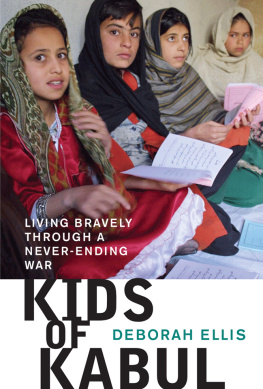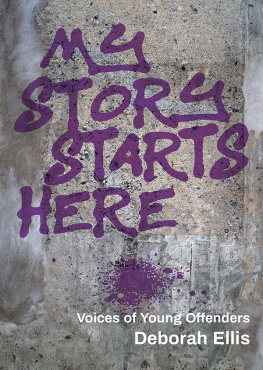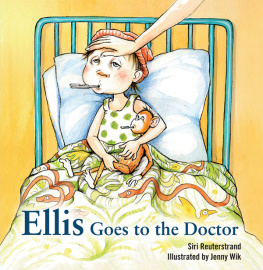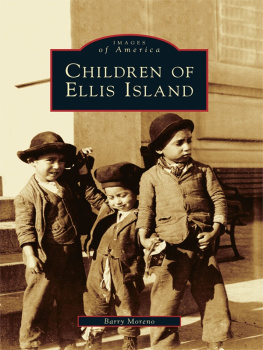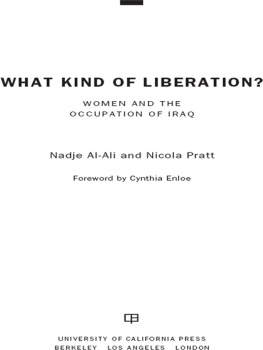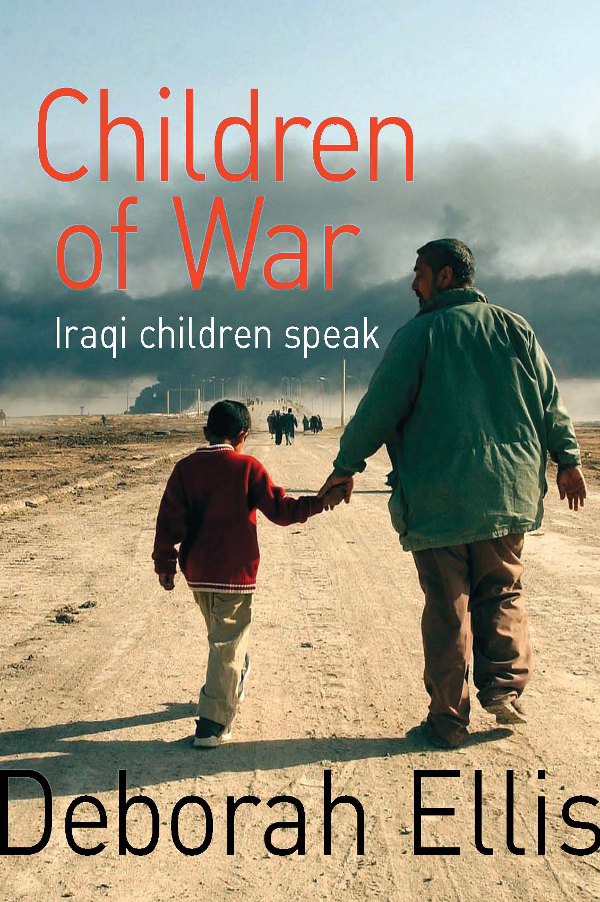
Also by Deborah Ellis
Off to War: Soldiers children speak
Three Wishes: Palestinian and Israeli children speak out
Parvana
Parvanas Journey
Shauzia
Diego, run!
Diegos Pride
Looking for X
A Company of Fools
The Heaven Shop
Children
of War
Iraqi refugees speak
Deborah Ellis

This edition published in 2009
First published in Canada and the USA by Groundwood Books Ltd.
Copyright Deborah Ellis 2009
All photos courtesy of the author.
All rights reserved. No part of this book may be reproduced or transmitted in any form or by any means, electronic or mechanical, including photocopying, recording or by any information storage and retrieval system, without prior permission in writing from the publisher. The Australian Copyright Act 1968 (the Act) allows a maximum of one chapter or ten per cent of this book, whichever is the greater, to be photocopied by any educational institution for its educational purposes provided that the educational institution (or body that administers it) has given a remuneration notice to Copyright Agency Limited (CAL) under the Act.
Allen & Unwin
83 Alexander St
Crows Nest NSW 2065
Australia
Phone: (61 2) 8425 0100
Fax: (61 2) 9906 2218
Email: info@allenandunwin.com
Web: www.allenandunwin.com
National Library of Australia
Cataloguing-in-Publication entry:
Ellis, Deborah, 1960
Children of war: Iraqi refugees speak
9781742371146 (pbk.)
9781743434802 (eISBN)
Subjects: Iraq War, 2003 Children.
Iraq War, 2003 Psychological aspects.
Refugee children.
956.704431083
Cover design by Sandra Nobes
Cover photo: Getty Images
Text design by Tou-can Design
Set in 11.5 pt Adobe Garamond by Tou-Can Design
To all the families who shared
their stories with me.
A refugees life is never an easy one, but its especially tough on young people who are robbed of what should be the most formative, promising, and exciting years of their lives. At a time when they should be full of hopes and dreams for the future, they are instead faced with the harsh reality of displacement and privation
United Nations High Commissioner for Refugees
Contents
Iraq is a relatively new country, only gaining its independence in 1932. But it is also the site of one of the oldest civilizations in the world. Near Baghdad, the capital, lie the ruins of Babylon, whose hanging gardens were once one of the seven wonders of the world. The oldest written stories in the world, the Gilgamesh cycle, also come from there.
Today Iraq, which is one of the worlds important sources of oil, is a war zone. Between 1979 and 2003 the country was ruled by a brutal dictator, Saddam Hussein, who kept its many and various peoples including Sunni and Shia Muslims, Kurds, Jews, Christians and others under control by force. He threw his opponents in prison. The Kurds, whose guerrillas wanted independence from Iraq, were bombed with chemical weapons. The majority Shia were attacked, killed and starved by the Sunni-led regime.
Despite the brutality of Saddams regime, there were positive elements to life in Iraq. Women had equal rights with men and were able to work at any job they were qualified for. There were many great writers, universities and a vibrant intellectual life, though not one that allowed open criticism of the dictator. There was free education for all boys and girls and excellent health care. So at the same time that opponents of the regime were tortured and killed, in general, people who went along with the government led a fairly decent life.
In 1980, Iraq bombed Iran, launching an eight-year war in which more than a million people died. Saddam invaded neighboring Kuwait in 1990, leading to the First Gulf War, in which a coalition led by the United States and sanctioned by the UN drove him back into Iraq.
Saddam used chemical weapons against his enemies and even against his own people, the Kurds. And at one time it appeared that he was trying to develop atomic weapons and other weapons of mass destruction. After the First Gulf War, the United Nations as part of the peace agreement was allowed to send in weapons inspectors to search for and destroy these weapons of mass destruction. Saddam did not cooperate with these inspections and made life very difficult for the inspectors, but in the end there was general agreement that the great majority of the weapons, labs and other materials needed to build such weapons had been found, removed and destroyed.
Then came the attacks on the Pentagon and the World Trade Center on September 11, 2001. Although none of the organizers or attackers were from Iraq, the government of George W. Bush was convinced that Iraq was still harboring weapons of mass destruction. They also made the claim, for which no proof has ever been provided, that Saddam Hussein had links to the September 11 attacks. In addition, the Bush government claimed that a war to eliminate Saddam would bring democracy to the Middle East.
Despite world-wide opposition from countries normally allied with the United States, and despite not being able to win support from the United Nations, the United States, Great Britain, Australia and some smaller countries formed what was called the Coalition of the Willing and invaded Iraq in March 2003, bombing Baghdad and launching the Second Gulf War. They did this against the principles embodied in the United Nations Charter. It was, in effect, an illegal war. Saddam Hussein was overthrown quite quickly after massive bombing raids on cities where millions of people lived, and the country was occupied. No weapons of mass destruction were ever found.
The fall of Saddam resulted in new waves of sectarian violence, as various groups inside the country continued to fight for power. At the time of this writing, there were still foreign troops mainly American forces in Iraq, and the country had fallen into what some are calling a civil war.
The children in this book are mostly refugees who fled Iraq because of the war and were living in Jordan in the fall of 2007. They represent only a tiny number of those whose lives have been deeply impacted, now and forever, by the American decision to invade their country. Almost 5 million refugees have been displaced by the war. About 3 million are internal refugees Iraqis who were forced to flee their homes but were unable to cross the border. Many of them are now stuck in remote tent camps without access to schools, health care, electricity, or even food and clean water. Most of the others have fled to nearby countries such as Jordan and Syria, where they face uncertain futures. Others have stayed in Iraq and are trying to rebuild their lives in the towns and cities there. Only a relative handful of Iraqi refugees, even of those who worked for the invading army, have been allowed into the countries of the Coalition of the Willing and their NATO allies.
I chose to go to Jordan to collect the interviews for this book simply because the entry process was easier than for Syria. Because English is my only language, most of the interviews were conducted through two interpreters one associated with the Mandaean community (an ancient religious sect) and one with a group called the Collateral Repair Project, a grassroots organization that provides relief, training, medical care and education to Iraqi refugees.
Next page
